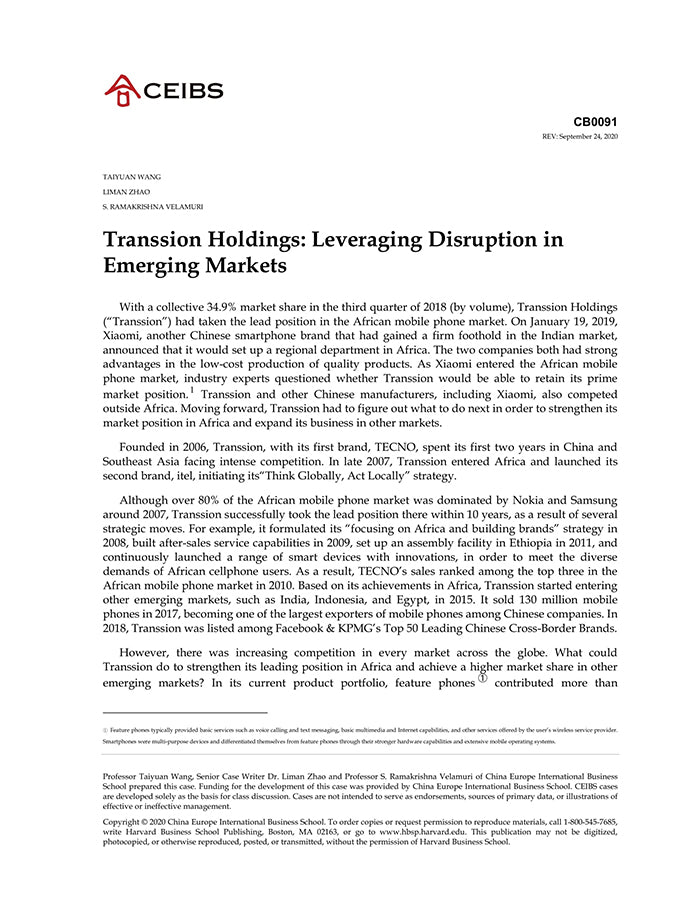Transsion Holdings: Leveraging Disruption in Emerging Markets
受取状況を読み込めませんでした
This case describes how Transsion Holdings ("Transsion"), a company with Chinese origins and strong advantages in the low-cost production of quality products, has used disruptive innovation to drive its many achievements in African and other emerging markets (such as India). As a startup with few resources, it was able to surpass global mobile phone brands (such as Samsung and Nokia) and take the lead position in the African mobile phone market (in terms of market share by volume). However, Transsion has been facing fierce competition in recent years. In January 2019, Xiaomi, a well-known Chinese smartphone brand, also entered the African market after gaining a firm foothold in the Indian market, and thus became a threat to Transsion's efforts to retain its lead position in Africa. In India, Transsion has to compete against Xiaomi as well as aggressive local competitors. Furthermore, due to consumption upgrading, the development of feature phones is making way for that of smartphones. How can Transsion, as the world's largest feature phone brand, expand its business in such an environment? Based on the disruptive innovation theory proposed by Dr. Clayton M. Christensen, this case will lead a discussion on why Transsion successfully entered Africa and achieved a leading position there and how Transsion should act in other emerging but competitive markets. By doing so, it aims to explore the implications of technology-based companies' growth strategy in emerging markets.
【書誌情報】
ページ数:15ページ
サイズ:A4
商品番号:HBSP-CB0091
発行日:2020/9/24
登録日:2021/4/14


